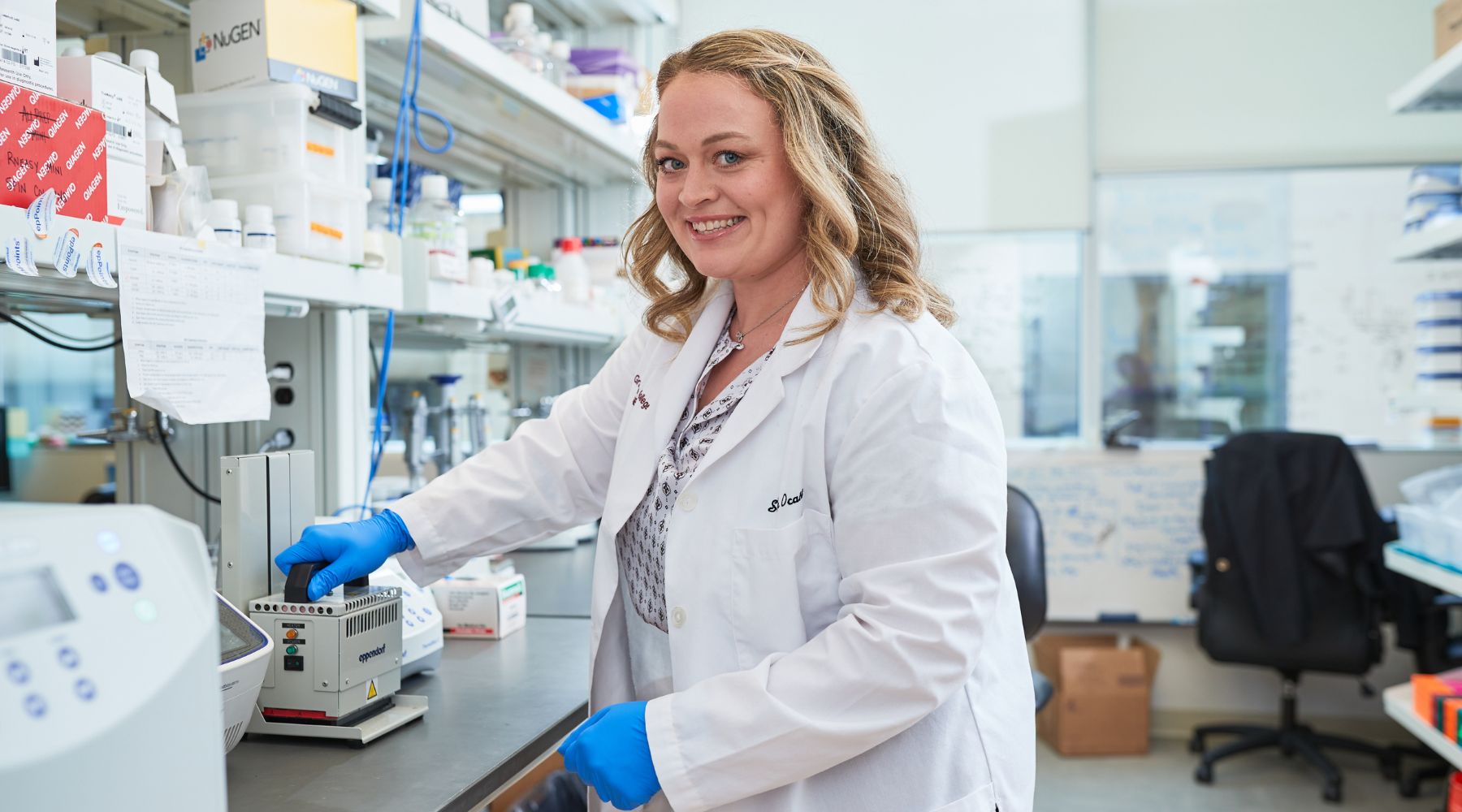Funded by a $248,000 grant from the Alzheimer’s Association, Oklahoma Medical Research Foundation scientist Sarah Ocañas, Ph.D., will examine whether an estrogen boost can delay or possibly prevent the disease in post-menopausal women.
Research increasingly has pointed toward menopausal hormone decline as a driving reason why women are more likely than men to get Alzheimer’s – and to suffer worse symptoms from it.
Ocañas will study the relationship between estrogen depletion and the onset of Alzheimer’s. She said previous research indicates that hormone replacement therapy is most effective at preventing Alzheimer’s if given during the first decade after menopause begins.
“Our goal is to better understand the biology and the mechanisms of Alzheimer’s, particularly in women, so that eventually physicians can provide a more personalized treatment approach before symptoms manifest,” Ocañas said.
The degenerative brain disease is the most common form of dementia. According to the Alzheimer’s Association, more than 6 million people in the U.S. – primarily women over age 65 – have the disease. The Alzheimer’s Association expects that figure to double by 2050.
One hallmark of Alzheimer’s is the accumulation of amyloid plaques – clumps of a naturally occurring protein that collect between neurons in the brain.
The U.S. Food and Drug Administration has approved two drugs that remove these plaques. However, the difference in effectiveness between men and women hasn’t been thoroughly evaluated, Ocañas said, in part because early testing didn’t account for menopause.
“So that’s another goal of this research – to develop a better model for early testing of potential Alzheimer’s treatments, especially for post-menopausal women,” Ocañas said.
Her lab will also examine whether hormone replacement therapy is especially beneficial for women with a particular genetic risk factor linked to Alzheimer’s.
“Women are at the epicenter of the Alzheimer’s disease and related dementia epidemic,” said Heather M. Snyder, Ph.D., Alzheimer’s Association vice president of medical and scientific relations. “The Association has increased its focus on research about the relationship between biological sex and the brain, and there is a need for the field to focus on sex hormones, including menopause transition, estrogen levels, hormone therapy and use of gender-affirming hormones, as exemplified by the work being done by Dr. Ocañas.”
Ocañas received her three-year grant through the association’s Sex and Gender in Alzheimer’s program.



